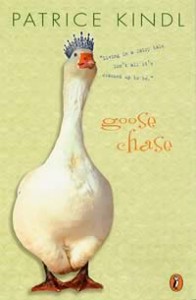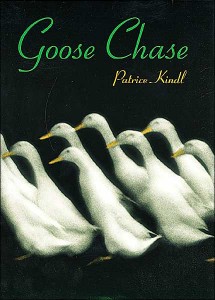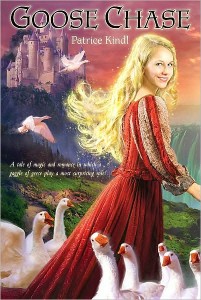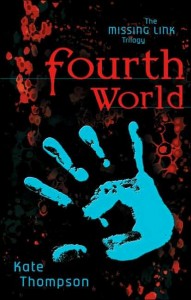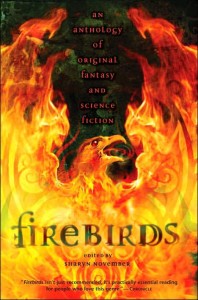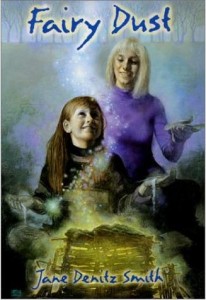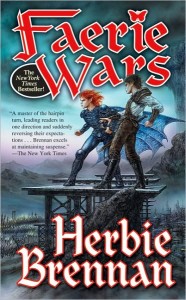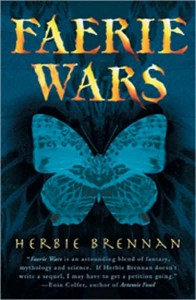
 Polly, Era, and Thalia have just suffered the ultimate in grounding: banishment to Earth. You see, they’re not exactly ordinary run-of-the-mill teenage girls. No, they’re the resident troublemakers of Olympus, home of the Greek gods, and they’ve just upset their father, Zeus, for the last time. Faced between an eternity in Tartarus and exile to Earth, the three girls have no choice but to take the least of two evils. Before anyone can blink an eye, Polly (short for Polyhymnia), Era (Erato), and Thalia are on Earth. What are three teenage Muses to do while working towards redemption? Good question.
Polly, Era, and Thalia have just suffered the ultimate in grounding: banishment to Earth. You see, they’re not exactly ordinary run-of-the-mill teenage girls. No, they’re the resident troublemakers of Olympus, home of the Greek gods, and they’ve just upset their father, Zeus, for the last time. Faced between an eternity in Tartarus and exile to Earth, the three girls have no choice but to take the least of two evils. Before anyone can blink an eye, Polly (short for Polyhymnia), Era (Erato), and Thalia are on Earth. What are three teenage Muses to do while working towards redemption? Good question.
Zeus may be all-powerful, but even he makes mistakes. Instead of Athens, Greece, 423 B.C.E., the trio ends up in Athens, Georgia, 2002. Oops. Exiled to a world they have absolutely no clue about, obligated to attend the series of pitfalls known as high school, and forbidden to use any magic whatsoever, Thalia and her sisters are in for a rough time. Nova High’ll never know what hit it.
The first in this new series, Heaven Sent, sets up the basic premise, introducing us to Polly, Thalia, and Era. Polly’s the meddling one, always trying to help others without fully thinking through the consequences. Era’s the compliant one, allowing her sisters to sway her against her better judgment. And Thalia’s the self-centered sister, thinking of herself before others, and allowing her own needs to blind her to the repercussions. They’ll need to work together, and to overcome these faults, before they can return home to Olympus. It’s going to be a long exile, unfortunately. Not only do they have to overcome their own faults and minimize the damage of the others’ shortcomings, but they must do it while adjusting to an alien world, and all without even a shred of handy magic to smooth those edges. And what’s up with that nasty trio of “Backroom Betties,” the girls in the back of the room determined to ruin our heroines’ day with malicious gossip and outright manipulation? Do they have any relation to the Muses’ mortal enemies, the Furies?
As Heaven Sent progresses, we’re filled in on the backstory. Namely, just what the three did that was so awful that Hera (queen of the gods, wicked stepmother extraordinaire) was ready to send them to Tartarus for. It involves a wedding, a book of forbidden spells, and an outbreak of Scyllia disease, which involves such lovely symptoms as serpents and sea scum. Oops. We’re also treated to Teen Life 101, or How To Be A Teenager In Several Easy Lessons. That is, if your teacher’s Hermes and everything he knows came from television. Hint: hide large thighs with vertical stripes, and call Oprah for advice, and for everything else, there’s Mastercard.
The first book culminates in a battle of wills, magic, and talent against the Furies, as Polly exercises her true talents of song and dance, and asserts herself as someone to be reckoned with. Will the Furies leave our heroines alone? Will Polly get more respect? Will Thalia get the guy of her dreams? Will they ever get back to Olympus? Obviously not in this book, because in the sequel, Three Girls and a God, things go from bad to worse.
How much worse? Well, Hera’s not too happy about that magic usage from the first book, and she’s not in a mood to grant a second chance, until Zeus placates her with some fast talk and a lot of jewelry. One more mistake, though, and… To complicate matters, the Furies are still lurking around in their own guise as high school students (Tizzie, Meg, and Alek) and Apollo (yes, the god himself) is determined to lend Polly, Thalia, and Era a hand. Zeus has his doubts, but it’s away to Earth for Apollo.
Meanwhile, Era’s followed her heart, right into survival class, all because of a crush on the instructor. She’s the most unlikely candidate for a survival class alive, unfortunately. Polly’ll do anything to help her sister out, but will she go too far this time? Thalia has a video report to do on what it’s like to be a teenager, and she’s been partnered not with her new best friend Claire, but with the new guy in school, Dylan from Denver. Who always wears a full football uniform, even to class, complete with helmet and football. Whose last name seems to be “from Denver.” Who has the major hots for none other than Thalia. What planet is he from? It’s wacky hijinks and one mix-up after another as the three Muses and the three Furies continue to play off against one another, with Dylan in the middle. In the end, Polly will learn something about helping others, Era will learn about self-sufficiency, and Thalia will learn about teenage life. Unfortunately, they’re not much closer to returning home, which perfectly sets them up for the next book in the series, Muses on the Move, which involves a road trip to Denver over Thanksgiving break.
I have to admit that, lightweight as these books are, I enjoyed them. The characters are lively and consistent, mixing the confusion of the teenage years with the absolute naivety that can only come from being absolutely unfamiliar with the real world. They’re smart in all the wrong ways, knowledgeable in the arts and sciences of ancient Greece, but clueless when it comes time to try and fit in. By examining modern society from an outside viewpoint, the series gives the reader a new insight into how high school works, pulling forth as much comedic value as possible in the process.
By far, the most amusing aspect of Goddesses has to be the footnotes. Every time one of the Muses (with Thalia being the most frequent narrator) casually drops a reference to a name or place from myth, the footnotes explain it in more detail … as coming from a high school student. It’s Greek myth lite, with Medea explained as “a booty-kicking witch who was dating Jason, one of Era’s first loves” and the goddess Aurora described as “the cheerleader of the goddess world” and Jason himself called “A serious babe and heir to the throne of Greece… sort of the Prince William of ancient times.” That’s one way of conveying information without making it dull.
With two books out so far, and more on the way, Goddesses is a welcome addition to the bookshelves. The books are light, enjoyable, and ultimately harmless. They’ll appeal to the younger teenage crowd who want something that doesn’t overly tax the brain. I’ll be keeping an eye on the series, just to see if Thalia gets her guy in the end, or if the Furies will muck it all up. These aren’t high literature, but they’re good, honest fun.
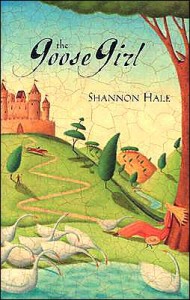
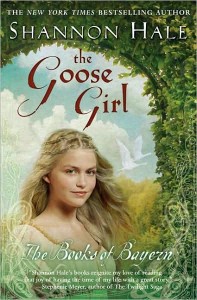 The third and final look at retold fairy tales again turns its attention to geese, with Goose Girl. In this particular version, Anidori-Kiladra, Crown Princess of the small kingdom of Kildenree, is born with a peculiar, magical gift, to understand the language of birds. Encouraged by her aunt, but discouraged by her mother, Ani is forced to keep her gift a secret from almost everyone as she grows up, so she won’t be thought a witch. She must, insists her mother, learn to be a princess and a ruler. However, when Ani learns that she’s being groomed to marry the prince of the much larger kingdom of Bayern, that she’s just a pawn in her mother’s hands, her world is changed forever. For her faithful servant Selia has designs on the Princess’ life, and very identity, and during the long months of the journey to Bayern, Selia and her conspirators have time to attempt to kill and replace Ani once and for all.
The third and final look at retold fairy tales again turns its attention to geese, with Goose Girl. In this particular version, Anidori-Kiladra, Crown Princess of the small kingdom of Kildenree, is born with a peculiar, magical gift, to understand the language of birds. Encouraged by her aunt, but discouraged by her mother, Ani is forced to keep her gift a secret from almost everyone as she grows up, so she won’t be thought a witch. She must, insists her mother, learn to be a princess and a ruler. However, when Ani learns that she’s being groomed to marry the prince of the much larger kingdom of Bayern, that she’s just a pawn in her mother’s hands, her world is changed forever. For her faithful servant Selia has designs on the Princess’ life, and very identity, and during the long months of the journey to Bayern, Selia and her conspirators have time to attempt to kill and replace Ani once and for all.
